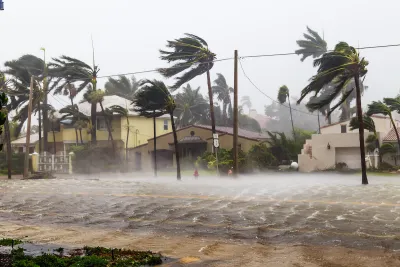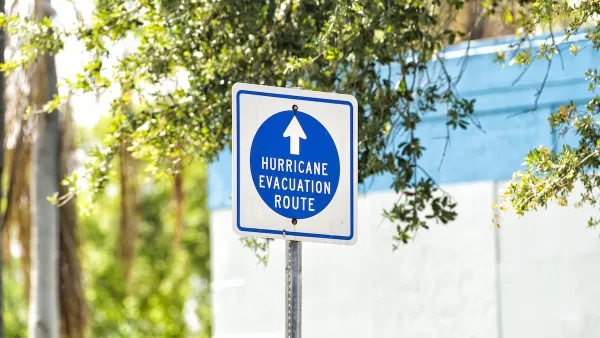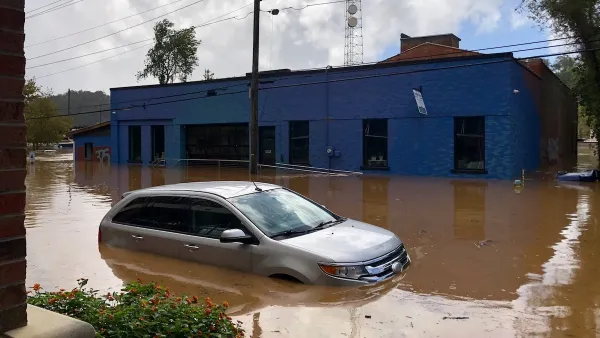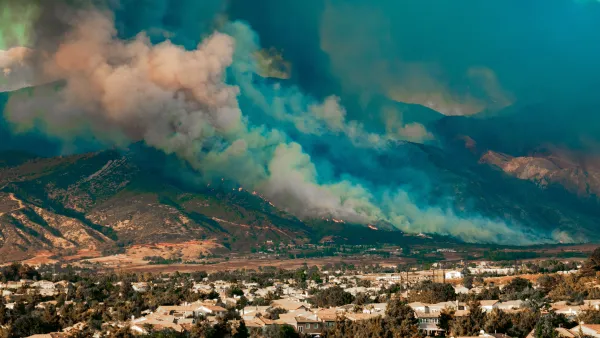Black Americans are flocking to southern states, but many popular destinations face growing threats from extreme weather.

An article for Capital B and republished in Inside Climate News by Adam Mahoney draws attention to a growing conundrum: as more Black Americans move to the South in search of affordability and good weather, they are increasingly at risk from climate disasters like hurricanes and wildfires. “Over the past decade, Texas and Florida, two states known for hurricanes and extreme heat waves – but mild winters – have seen the most new residents as roughly a third of relocating Americans say ‘better weather’ is the reason for their moves.”
As Mahoney explains, 94 percent of the nation’s Black population growth since 2020 has occurred in the South. Meanwhile, “The country’s most climate vulnerable counties are concentrated in the Southeast, according to the most comprehensive climate risk data available.” Since 2016, more than half of major weather-related power outages happened in Southern states.
“For Black folks, this presents a unique set of considerations — and challenges. It seems that in the attempt to escape the environmental racism and the poor health outcomes of the North and Midwest, Black people are essentially moving toward the epicenter of climate disasters, says Rhiana Gunn-Wright, the director of climate policy at the Roosevelt Institute.” According to research, Black Americans experience disparate outcomes from their white counterparts during disasters and recovery. “Even when Black residents receive recovery aid, white people who receive the same amount of federal assistance see their wealth rise, while Black residents see their wealth decline following disaster, a study by Rice University found.”
FULL STORY: Moving South, Black Americans Are Weathering Climate Change

Analysis: Cybertruck Fatality Rate Far Exceeds That of Ford Pinto
The Tesla Cybertruck was recalled seven times last year.

National Parks Layoffs Will Cause Communities to Lose Billions
Thousands of essential park workers were laid off this week, just before the busy spring break season.

Retro-silient?: America’s First “Eco-burb,” The Woodlands Turns 50
A master-planned community north of Houston offers lessons on green infrastructure and resilient design, but falls short of its founder’s lofty affordability and walkability goals.

Test News Post 1
This is a summary

Analysis: Cybertruck Fatality Rate Far Exceeds That of Ford Pinto
The Tesla Cybertruck was recalled seven times last year.

Test News Headline 46
Test for the image on the front page.
Urban Design for Planners 1: Software Tools
This six-course series explores essential urban design concepts using open source software and equips planners with the tools they need to participate fully in the urban design process.
Planning for Universal Design
Learn the tools for implementing Universal Design in planning regulations.
EMC Planning Group, Inc.
Planetizen
Planetizen
Mpact (formerly Rail~Volution)
Great Falls Development Authority, Inc.
HUDs Office of Policy Development and Research
NYU Wagner Graduate School of Public Service




























